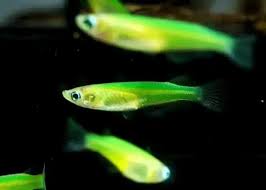Chinese fresh tea has been a key element in traditional Chinese medicine (TCM) for centuries, valued for its detoxifying and liver-supporting properties. In recent years, scientific research has confirmed that tea, particularly varieties like green tea, Pu-erh, and white tea, plays a crucial role in maintaining liver health, reducing fat accumulation, and preventing liver-related diseases.
This article explores:
- The bioactive compounds in Chinese fresh tea that support liver function.
- Scientific studies on tea’s effects on liver detoxification, fatty liver disease, and hepatitis.
- The best types of tea for liver health and how to consume them for maximum benefits.
1. Key Bioactive Compounds in Chinese Fresh Tea That Support Liver Health
Chinese tea contains powerful antioxidants, polyphenols, and catechins, which play essential roles in protecting and improving liver function.
1.1. Catechins – The Liver’s Protective Shield
Catechins, particularly epigallocatechin gallate (EGCG), are potent antioxidants found in green tea. They help:
- Reduce oxidative stress in liver cells.
- Lower inflammation caused by toxins and free radicals.
- Improve liver enzyme levels, promoting overall liver function.
1.2. Polyphenols – Supporting Detoxification
Polyphenols in tea, including flavonoids and theaflavins, aid the liver in:
- Neutralizing harmful toxins before they damage liver cells.
- Enhancing bile production, which helps break down fats and remove waste.
- Regenerating liver tissue, reducing the risk of liver fibrosis.
1.3. Theanine – Balancing Liver Function
Theanine, an amino acid in tea, has been shown to:
- Protect liver cells from damage due to alcohol and fatty deposits.
- Regulate liver enzymes, ensuring proper metabolic function.
- Reduce stress-related liver strain, which can contribute to inflammation.
1.4. Caffeine – A Natural Liver Booster
Moderate caffeine levels in tea can:
- Promote fat metabolism, preventing fatty liver disease.
- Enhance liver circulation, improving detox efficiency.
- Prevent liver fibrosis by reducing excessive collagen buildup.
2. Scientific Studies on the Liver-Protective Effects of Tea
2.1. Tea and Liver Detoxification
The liver is responsible for breaking down toxins and converting them into waste products. Tea enhances this process by:
✅ Boosting liver enzyme activity to accelerate detoxification.
✅ Preventing toxin accumulation by promoting bile flow.
✅ Reducing oxidative stress, which can damage liver cells.
🔍 Scientific Evidence:
- A 2017 study in the Journal of Nutrition found that green tea polyphenols increase detoxification enzyme activity, improving liver function.
- Another study in Food and Chemical Toxicology (2018) confirmed that tea catechins help the liver process heavy metals and toxins more efficiently.
Best Tea for Detox:
- Green tea – High in EGCG, which speeds up detoxification.
- White tea – Rich in antioxidants that neutralize toxins.
2.2. Tea and Fatty Liver Disease (NAFLD)
Non-Alcoholic Fatty Liver Disease (NAFLD) is a growing concern due to poor diets and sedentary lifestyles. Tea has been shown to:
✅ Reduce fat accumulation in liver cells.
✅ Enhance lipid metabolism, preventing fat buildup.
✅ Lower insulin resistance, a key factor in NAFLD development.
🔍 Scientific Evidence:
- A 2020 study in the International Journal of Molecular Sciences found that green tea extract significantly reduced liver fat accumulation in patients with NAFLD.
- A 2019 meta-analysis of 15 studies showed that regular tea consumption was associated with lower liver fat levels.
Best Tea for Fatty Liver:
- Pu-erh tea – Known for breaking down fat deposits.
- Oolong tea – Supports lipid metabolism.
2.3. Tea and Alcohol-Induced Liver Damage
Excessive alcohol consumption can lead to liver cirrhosis and inflammation. Studies suggest that Chinese fresh tea helps repair liver cells damaged by alcohol.
✅ Reduces inflammation caused by alcohol.
✅ Prevents alcohol-induced oxidative stress in the liver.
✅ Enhances liver enzyme function for faster recovery.
🔍 Scientific Evidence:
- A study in Molecules (2018) found that black tea polyphenols reduced liver damage caused by alcohol in animal models.
- Research from the Journal of Ethnopharmacology (2021) demonstrated that Pu-erh tea helped regenerate liver cells in alcohol-induced liver injury.
Best Tea for Alcohol-Induced Damage:
- Pu-erh tea – Detoxifies alcohol toxins.
- Black tea – Contains theaflavins that protect the liver.
2.4. Tea and Viral Hepatitis Prevention
Hepatitis, particularly Hepatitis B and C, can cause liver inflammation and long-term damage. Certain compounds in tea have antiviral properties that:
✅ Reduce viral replication in liver cells.
✅ Strengthen immune response against liver infections.
✅ Lower inflammation associated with hepatitis.
🔍 Scientific Evidence:
- A study in Frontiers in Pharmacology (2020) found that EGCG from green tea inhibited the replication of the Hepatitis B virus.
- Another study in Virology Journal (2019) showed that the polyphenols in white tea had antiviral effects against Hepatitis C.
Best Tea for Hepatitis Support:
- Green tea – Inhibits viral replication.
- White tea – Provides strong antiviral protection.
3. How to Use Chinese Fresh Tea for Liver Health
To maximize tea’s liver-protecting benefits, consider these tips:
3.1. Best Brewing Methods for Liver Health
- Use fresh, high-quality loose-leaf tea to get the highest concentration of antioxidants.
- Avoid over-brewing, as excessive steeping can release too much caffeine, which may stress the liver.
- Drink tea warm, not boiling hot, to preserve delicate polyphenols.
3.2. Best Times to Drink Tea for Liver Support
- Morning – Green tea or white tea for a metabolism boost.
- Afternoon – Pu-erh or oolong tea to aid digestion and liver detox.
- Evening – Light white tea for a calming effect without caffeine overload.
3.3. What to Avoid When Drinking Tea for Liver Health
🚫 Do not drink excessive tea on an empty stomach, as it may cause acidity.
🚫 Avoid adding too much sugar, as it may counteract liver benefits.
🚫 Limit tea intake to 3–5 cups per day to prevent overconsumption of caffeine.
4. Conclusion: The Role of Chinese Fresh Tea in Liver Health
Chinese fresh tea is one of the most effective natural remedies for liver health, backed by both ancient wisdom and modern science. Its unique combination of antioxidants, catechins, and polyphenols makes it an essential part of a liver-friendly lifestyle.
Key Takeaways:
✅ Green tea detoxifies the liver and prevents fatty liver disease.
✅ Pu-erh tea helps break down fat deposits and supports metabolism.
✅ White tea strengthens the immune system and protects against liver infections.
✅ Black tea supports liver regeneration after alcohol consumption.
With growing scientific evidence supporting tea’s role in liver health, drinking high-quality Chinese tea daily can be a simple yet powerful way to protect your liver and overall well-being. ☕💚










